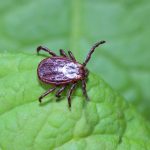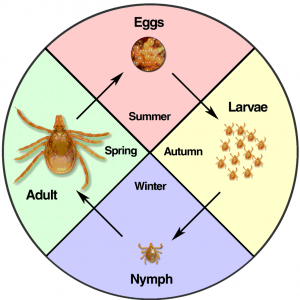
Ticks in Melbourne
Ticks are parasites that feed on animal and human blood. There are more than 800 species of ticks around the world, with 70 found in Australia and at least 16 species which bite humans. All stages of their life cycle they can feed and you can be bitten any time of year. Unless removed they can feed on you for around 3-7 days.
There are two major groups of ticks: hard ticks and soft ticks. Ticks tend to be more common in spring and summer as they prefer warm, humid climates. However, this does not prevent them from still being active throughout the year.
The most important tick in Australia is the Paralysis Tick and over 95% of tick bites in Eastern Australia are from this species. Most tick-borne illnesses are due to this species.
Contrary to popular belief this tick has been found in Victoria, believed to have ‘travelled’ to the Greater Melbourne area by hitching rides on pets visiting from interstate.
- The southern Paralysis Tick or Grass Tick (Ixodes holocyclus)
- Found along the eastern seaboard of Australia east of the Great Dividing Range including Melbourne
- Commonly referred to as the grass tick, seed tick and bush tick depending upon its stage of development
- The eastern Paralysis Tick or Tasmanian Tick (Ixodes cornuatus)
- Found across Tasmania and Victoria
- Commonly referred to as the grass tick, seed tick and bush tick depending upon its stage of development
Tick Disease and Contamination
The Paralysis Tick, (Ixodes holocyclus), can cause paralysis, which is relatively rare in humans but is more common in pets.
Far more common are allergic reactions to tick saliva. These can range from mild, where the bite gets red, swollen and inflamed, to life threatening anaphylaxis. EPC recommends you always seek medical advice if you feel unwell following a tick bite. Tick bites can lead to bacterial diseases.
Ticks bites can also lead to Mammalian Meat Allergy (MMA), which means you can no longer eat red meat (including beef, lamb, pork or goat) or associated products, like gelatine. It may also mean that you are unable to have certain drugs or vaccines. According to Tick Induced Allergies Research & Awareness (TiARA), Australia has the highest prevalence of MMA and tick anaphylaxis in the world.
Breeding and Life Cycle of Ticks
The Paralysis Tick needs to feed on blood to develop through its lifecycle from the larvae stage to a nymph and to an adult. For a tick to mature fully can take 1-3 years.

Tick life cycle (S.L. Doggett, Department of Medical Entomology, Westmead Hospital)
- Eggs
- Adult females lay up to 3,000 eggs
- All female ticks need to take a blood meal before producing eggs
- Eggs hatch in 40-60 days depending on temperature
- Larvae
- Approx. 0.5-1 mm long
- Light brown in colour (when not full of blood)
- Have 6 legs
- Most active in autumn
- Nymph
- Approx. 2 mm long
- Pale brown in colour
- Have 8 legs
- Most active in winter
- Adult
- Approx. 4-5 mm long (without blood)
- Have 8 legs
- Most active in spring and summer
Fun Facts about Ticks
- Ticks are not actually insects. They belong to a class called Arachnid, and their relatives include, spiders, scorpions and mites
- Ticks can be smaller than poppy seeds
- Ticks may survive without any food for 200 days
- A single adult female has the capability of consuming 0.6 ml blood or even more
Why choose EPC – Enviro Pest Control to control your ticks?
Tick treatment is a complex task. If you live in Melbourne and have a tick problem of any size, you should choose EPC – Enviro Pest Control to help you solve it because:
- EPC – Enviro Pest Control technicians are Trained Specialists and are very experienced at getting rid of ticks
- We arrive on time
- EPC– Enviro Pest Control technicians are discreet, friendly and professionally presented
- Fairly priced service with advice to help prevent fleas and ticks coming back
- EPC – Enviro Pest Control supplies tick treatments for the effective control of ticks
If you have pets, at the end of your lease you are generally required to conduct a flea and tick treatment on any carpeted area in your house and provide your landlord with the receipt for the service.
If you need to speak to a professional about Flea and Tick Treatments in Melbourne, call 03 9988 5066 now.
